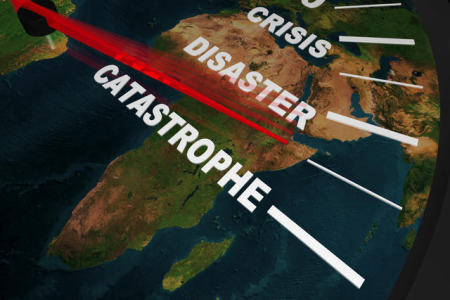How the Wisdom of Kabbalah Originated
Let us, for a moment, journey back through time to ancient Mesopotamia, the cradle of civilization. Roughly 4,000 years ago, situated within a vast and fertile stretch of land between the Tigris and Euphrates rivers in what today is Iraq, a city-state called Babel played host to a flourishing civilization. Bustling with life and action, it was the trade center of the entire ancient world.
Babel, the heart of the dynamic civilization we now call “ancient Babylon,” was a melting pot and the ideal setting for numerous belief systems and teachings. Its people practiced idol worship of many kinds, and among the most revered people in Babel was a priest named Abraham, who was a local authority in the practice of idol worship, as was his father, Terah.
However, Abraham had a very special quality: he was unusually perceptive, and like all great scientists, he had a zeal for the truth. The great 12th century scholar, Maimonides (also known as the RAMBAM), described Abraham’s determination and efforts to discover life’s truths in his book, The Mighty Hand:
“Ever since this firm one was weaned, he began to wonder. …He began to ponder day and night, and he wondered how it was possible for this wheel to always turn without a driver? Who is turning it, for it cannot turn itself? And he had neither a teacher nor a tutor. Instead, he was wedged in Ur of the Chaldeans among illiterate idol worshippers, with his mother and father and all the people worshipping stars, and he—worshipping with them.”
In his quest, Abraham learned what lies beyond the borderland that William Crookes described so many centuries later. He found the unity, the oneness of reality that Heisenberg, Schrödinger, Einstein, Leibniz, and others intuitively sensed. In Maimonides’ words, “He [Abraham] attained the path of truth and understood the line of justice with his own correct wisdom. And he knew that there is one God there who leads…, and that He has created everything, and that in all that there is, there is no other God but Him.”
(To interpret these excerpts correctly, it is important to note that when Kabbalists speak of God, they do not mean it in the religious sense of the word—as an almighty being that you must worship, please, and appease, which in return rewards devout believers with health, wealth, long life, or all of the above. Instead, Kabbalists identify God with Nature, the whole of Nature. The most unequivocal statements on the meaning of the term, “God,” were made by Baal HaSulam, whose writings explain that God is synonymous with Nature.
For example, in his essay, “The Peace,” he writes, “To avoid having to use both tongues from now on—Nature and a Supervisor—between which, as I have shown, there is no difference…it is best for us to…accept the words of the Kabbalists that HaTeva (The Nature) is the same…as Elokim (God). Then, I will be able to call the laws of God ‘Nature’s commandments,’ and vice-versa, for they are one and the same, and we need not discuss it further.”)
Continue reading “Abraham’s Immortal Wisdom on How to Best Understand God”





